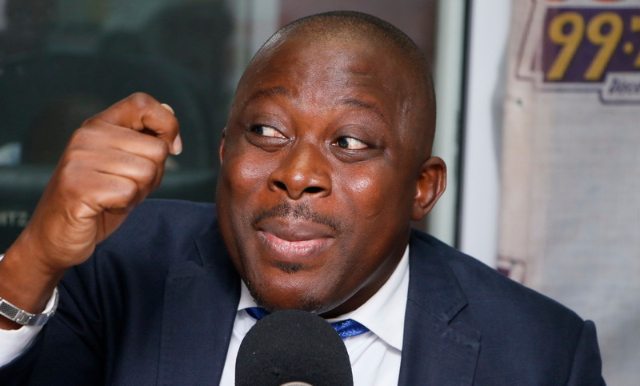adverts
Edward Abambire Bawa, former Member of Parliament for Bongo, has called out the New Patriotic Party (NPP) government for exacerbating the financial woes of Ghana’s energy sector, particularly by failing to effectively manage the debt inherited from the previous National Democratic Congress (NDC) administration.
According to Bawa, the energy sector debt was approximately $2.4 billion when the NDC left power in 2017, but this amount has since ballooned under the NPP’s leadership, leading to persistent power cuts and a deepening fiscal crisis.
Bawa made these claims during his appearance on The Big Issue on Channel One TV on Saturday, January 11, 2025.
adverts
He stated that the current administration’s inability to address the debt, along with its failure to meet financial obligations to Independent Power Producers (IPPs), has contributed directly to the power shortages that have plagued the country in recent months.
The former MP’s remarks come at a time when Ghana is struggling with frequent power outages, which have been severely affecting households and businesses alike. The IPPs, which supply a significant portion of the country’s electricity, have been unable to continue their operations smoothly due to mounting unpaid debts from the government. This has left the sector in a precarious position, further destabilising the national power grid.
Bawa pointed out that when the NDC left office in 2017, Ghana’s energy sector debt was approximately $2.4 billion.
He explained that this debt was largely a result of the country’s need to implement mechanisms like the Energy Sector Levy Act (ESLA) to address the sector’s financial challenges.
According to Bawa, the NDC had put in place a framework that was meant to ensure that the debt was manageable and could be paid off gradually.
However, Bawa criticised the NPP government for failing to take action on this debt after assuming power. Rather than working to stabilise the sector and fulfil the obligations to IPPs, the NPP allowed the debt to grow, leaving the country in a worse financial position.
He suggested that the NPP’s failure to handle the situation appropriately has led directly to the financial struggles the energy sector is facing today.
“What we are seeing today is the result of mismanagement and neglect. The debt that the NDC left in 2017 was manageable, but since the NPP came into power, they have allowed it to grow. This has created a vicious cycle where IPPs are unable to receive their payments, which in turn affects the reliability of our power supply,” Bawa explained.
The power outages that have swept across Ghana have sparked widespread frustration. Citizens, businesses, and industries have been left grappling with the impact of the electricity shortages, which have disrupted their daily activities.
Bawa suggested that these power cuts are directly linked to the failure to meet financial obligations to IPPs, and he argued that the lack of reliable power supply is a result of the NPP’s failure to act decisively in resolving the energy sector’s debt crisis.
The IPPs, which provide a significant portion of the country’s electricity, have faced growing challenges in maintaining their operations due to the government’s inability to meet payments. This has created a domino effect: without payment, these producers cannot maintain their power plants or expand their capacity, leading to further power shortages.
Bawa highlighted that the NDC had worked to create a framework to address the sector’s challenges, including the introduction of ESLA, which was designed to stabilise the energy sector’s finances.
However, he claimed that the NPP government had failed to properly manage and implement the system, allowing the debt to grow and the sector’s stability to deteriorate.


